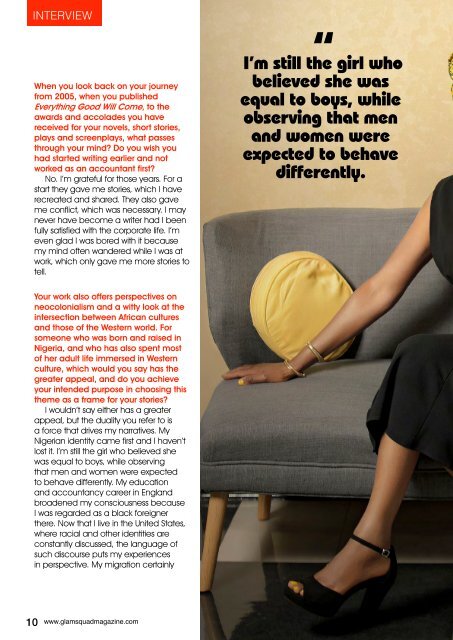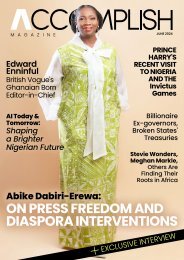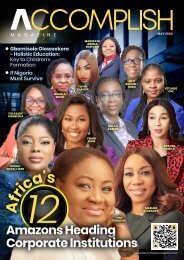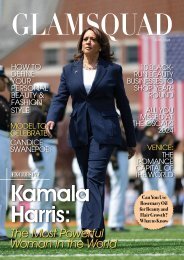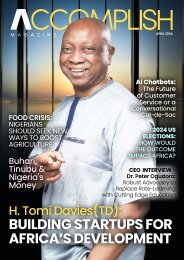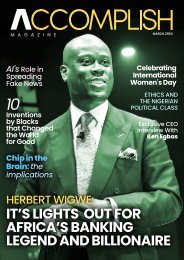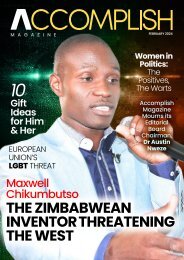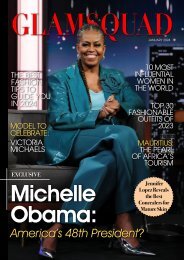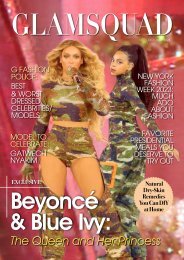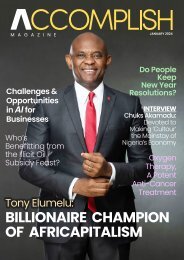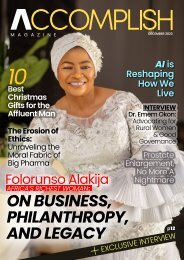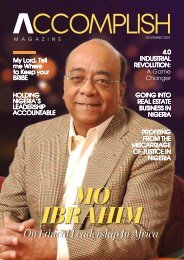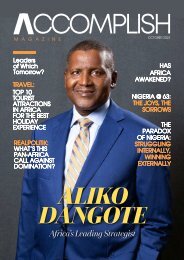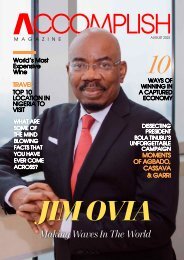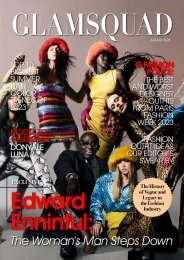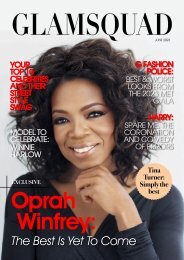Glamsquad Magazine May 2021
Sefi Atta - Nigeria's Writing Export To The World
Sefi Atta - Nigeria's Writing Export To The World
Create successful ePaper yourself
Turn your PDF publications into a flip-book with our unique Google optimized e-Paper software.
INTERVIEW<br />
When you look back on your journey<br />
from 2005, when you published<br />
Everything Good Will Come, to the<br />
awards and accolades you have<br />
received for your novels, short stories,<br />
plays and screenplays, what passes<br />
through your mind? Do you wish you<br />
had started writing earlier and not<br />
worked as an accountant first?<br />
No. I’m grateful for those years. For a<br />
start they gave me stories, which I have<br />
recreated and shared. They also gave<br />
me conflict, which was necessary. I may<br />
never have become a writer had I been<br />
fully satisfied with the corporate life. I’m<br />
even glad I was bored with it because<br />
my mind often wandered while I was at<br />
work, which only gave me more stories to<br />
tell.<br />
“<br />
I’m still the girl who<br />
believed she was<br />
equal to boys, while<br />
observing that men<br />
and women were<br />
expected to behave<br />
differently.<br />
Your work also offers perspectives on<br />
neocolonialism and a witty look at the<br />
intersection between African cultures<br />
and those of the Western world. For<br />
someone who was born and raised in<br />
Nigeria, and who has also spent most<br />
of her adult life immersed in Western<br />
culture, which would you say has the<br />
greater appeal, and do you achieve<br />
your intended purpose in choosing this<br />
theme as a frame for your stories?<br />
I wouldn’t say either has a greater<br />
appeal, but the duality you refer to is<br />
a force that drives my narratives. My<br />
Nigerian identity came first and I haven’t<br />
lost it. I’m still the girl who believed she<br />
was equal to boys, while observing<br />
that men and women were expected<br />
to behave differently. My education<br />
and accountancy career in England<br />
broadened my consciousness because<br />
I was regarded as a black foreigner<br />
there. Now that I live in the United States,<br />
where racial and other identities are<br />
constantly discussed, the language of<br />
such discourse puts my experiences<br />
in perspective. My migration certainly<br />
10<br />
www.glamsquadmagazine.com


